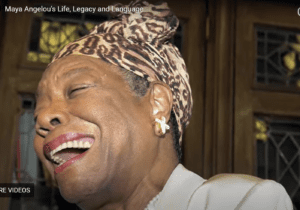Legends of African-American Blues – A Complete Guide
African-American blues is more than just music—it’s a cultural expression that reflects the historical, emotional, and social experiences of African Americans. Below is a detailed exploration of its subgenres, iconic artists, and broader cultural impact.
Key Subgenres of African-American Blues
1. Delta Blues
– Origin: Mississippi Delta, early 20th century.
– Characteristics: Raw, emotional vocals; slide guitar; minimal instrumentation.
– Key Artists: Robert Johnson, Charley Patton, Son House.
2. Chicago Blues
– Origin: Emerged during the Great Migration in Chicago.
– Characteristics: Electrified instruments, urban sound, larger bands.
– Key Artists: Muddy Waters, Howlin’ Wolf, Willie Dixon.
3. Piedmont Blues
– Origin: Southeastern U.S., particularly along the Piedmont region.
– Characteristics: Fingerpicking guitar techniques, upbeat and rhythmic.
– Key Artists: Blind Blake, Reverend Gary Davis, Etta Baker.
4. Texas Blues
– Origin: Texas, blending regional folk and blues traditions.
– Characteristics: Smooth guitar leads, jazzy influences.
– Key Artists: Lightnin’ Hopkins, T-Bone Walker, Stevie Ray Vaughan.
5. Country Blues
– Origin: Rural Southern areas in the early 20th century.
– Characteristics: Acoustic, storytelling lyrics, solo performances.
– Key Artists: Lead Belly, Blind Lemon Jefferson, Mississippi John Hurt.
6. Jump Blues
– Origin: 1940s, influenced by swing and jazz.
– Characteristics: Up-tempo rhythm, saxophone-heavy sound.
– Key Artists: Louis Jordan, Big Joe Turner, Wynonie Harris.

Influential African-American Blues Artists
1. Robert Johnson
– Known as the “King of Delta Blues,” Johnson’s intricate guitar playing and mysterious life shaped blues mythology.
2. Bessie Smith
– The “Empress of the Blues,” Smith’s powerful voice brought blues to mainstream audiences in the 1920s and 1930s.
3. Muddy Waters
– A pioneer of Chicago blues, Muddy Waters electrified the blues and became a major influence on rock music.
4. Ma Rainey
– Dubbed the “Mother of the Blues,” Rainey’s performances laid the groundwork for early blues recording.
5. Howlin’ Wolf
– Known for his booming voice and larger-than-life stage presence, Howlin’ Wolf defined the Chicago blues sound.
6. Lightnin’ Hopkins
– A prolific Texas blues guitarist known for his soulful, improvisational style.
7. John Lee Hooker
– Famous for his deep, hypnotic boogie style, Hooker bridged the gap between Delta and urban blues.
8. Big Mama Thornton
– Best known for her original recording of “Hound Dog,” later made famous by Elvis Presley.

Cultural Impact of African-American Blues
1. Foundation of Modern Genres
– Blues directly influenced rock & roll, jazz, soul, R&B, and hip-hop, with its rhythms, themes, and techniques forming the backbone of contemporary music.
2. Social Commentary
– Blues often served as a voice for the oppressed, addressing issues like racism, poverty, and heartbreak.
3. Global Reach
– British bands like The Rolling Stones and Led Zeppelin drew heavily from blues, popularizing it worldwide and connecting it to new audiences.
4. Inspiration for Civil Rights
– Blues themes of struggle and resilience resonated during the Civil Rights Movement, influencing protest music and cultural identity.
5. Literary and Artistic Influence
– Blues inspired works of literature, poetry, and visual arts, serving as a symbol of creativity and resistance.
Additional Subtopics for Exploration
1. Blues and the Great Migration
– How the movement of African Americans from the South to northern cities reshaped the blues and introduced new sounds.
2. Blues in Film and Media
– The portrayal of blues in films like *Cadillac Records* and its influence on visual storytelling.
3. Modern Blues Artists
– Contemporary artists like Gary Clark Jr. and Keb’ Mo’ continue to innovate while honoring traditional blues roots.
4. Blues Festivals and Preservation
– Events like the Chicago Blues Festival celebrate the genre, ensuring its legacy for future generations.
5. Blues and Spirituality
– The connection between blues and gospel, showcasing how the two genres intertwined to reflect both secular and sacred experiences.

FAQs About African-American Blues
- What is the historical significance of African-American blues?
The blues originated as an expressive outlet for African Americans in the post-slavery South, conveying themes of hardship, resilience, and emotional depth. - How did slavery and its aftermath shape the blues?
The blues emerged from the oral traditions of enslaved people, including work songs, spirituals, and field hollers, evolving into a distinct genre post-Reconstruction. - What defines the sound of blues music?
Key elements include the 12-bar structure, blue notes, call-and-response patterns, and improvisational techniques. These features create a deeply personal and emotive sound. - Who is known as the “Father of the Blues”?
W.C. Handy is often called the “Father of the Blues” for his role in popularizing and formalizing the genre with compositions like “St. Louis Blues.” - What is Delta blues, and why is it important?
Delta blues, originating from the Mississippi Delta, is characterized by its raw emotion and use of slide guitar. Artists like Robert Johnson epitomized this style. - What role did African-American women play in the blues?
Pioneering women like Ma Rainey, Bessie Smith, and Memphis Minnie were trailblazers, using the blues to express themes of empowerment and social issues. - How did the Great Migration influence blues music?
The Great Migration brought African Americans to northern cities like Chicago, where the blues evolved into electric styles, including Chicago blues. - What distinguishes Chicago blues from Delta blues?
Chicago blues uses amplified instruments and features a fuller sound, blending urban influences with traditional blues. Muddy Waters and Howlin’ Wolf were key figures. - How did blues music influence rock & roll?
Early rock artists like Elvis Presley, Chuck Berry, and The Rolling Stones drew heavily from blues riffs, rhythms, and themes, making the genre a cornerstone of rock. - What is the significance of Robert Johnson in blues history?
Robert Johnson, known for his intricate guitar playing and haunting lyrics, is a legendary figure often linked to the myth of “selling his soul to the devil.” - What are “blue notes” in blues music?
Blue notes are slightly flattened pitches that give the blues its distinctive sound, often conveying a sense of melancholy or longing. - How did blues influence jazz?
The blues provided a framework for early jazz musicians, introducing elements like improvisation, swing rhythms, and emotional depth. - What is Piedmont blues?
Piedmont blues is a regional style that uses fingerpicking techniques and emphasizes a rhythmic, danceable sound. It originated in the Southeastern U.S. - How is the blues preserved today?
The blues remains alive through festivals, recordings, and contemporary artists who honor its traditions while innovating within the genre. - Why is African-American blues considered a global influence?
Blues has inspired musical traditions worldwide, influencing artists and genres across continents, from British rock to African guitar styles.
Conclusion: The Legacy of African-American Blues
African-American blues is more than just a genre—it is a profound expression of resilience, creativity, and cultural identity. Emerging from the struggles and triumphs of African-American communities in the post-slavery era, blues music laid the foundation for nearly every modern genre, from rock and jazz to soul and hip-hop. Its themes of heartbreak, hope, and human connection resonate universally, ensuring its timeless appeal.
Through its pioneers, subgenres, and evolving influence, African-American blues remains a testament to the power of music as a tool for storytelling, social commentary, and emotional expression. Whether through the raw authenticity of Delta blues or the electrified energy of Chicago blues, the genre continues to inspire generations of artists and listeners worldwide.
Preserving and celebrating this rich heritage is crucial, as it honors the voices of those who transformed personal and collective struggles into a lasting cultural treasure. The blues is not just history—it’s a living, breathing art form that will continue to shape music for years to come.

